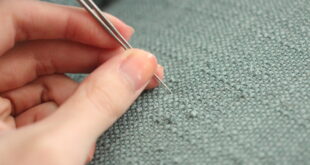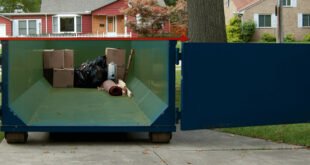One needs proper storm damage management depending upon the area of residence, flood-prone areas especially. It is compulsory to avoid repetitive damage occurring in the house due to floods and storms.
The problems mentioned below will give you an exact idea about the effect of water and storm damage in Fredrick, MD.
Sewage reflux:
When the stormwater that has inundated your home does not properly drain off, it can lead to a series of health issues that would be harmful to your well being. Sudden flooding caused by storms may block your municipality sewage system, causing the reflux of sewage water into your house. Also, the drainage system of your home could be compromised, causing the water from urinals to back out into the house.
The putrid smell, dirt, and toxins pose a severe biohazard that leaves you open to various forms of bacterial and viral infections. Therefore, getting rid of the sewage water becomes your priority for you and your family’s safety.
Unwanted growth of microbes and insects:
Moisture is the cornerstone for the growth of various types of fungus, mildews, molds, and insects. Some molds require as less as 48 hours to grow, which then, upon spreading, pose a grave threat to your health. Moreover, upon exposure to water, dormant spores get converted into active ones who continue to grow even after the water has been drained off.
Insects are also attracted to moisture and lay their eggs when they find a place that is suitable for their habitat. These eggs, later on, hatch and defile other areas too. They will contaminate your drinking water and food, leading to respiratory infections, allergies, asthmatic attacks.
Structural damage:
After the storm subsides, another critical issue that one needs to address is to avoid structural damage. Water can weaken the foundation of your house, debilitating the integrity of your roofs, walls, wooden fittings, and floors.
Wooden works are most susceptible to damage as they quickly absorb water and become prone to the growth of molds and fungi. Wood structures that support walls and roofs are the areas where one needs to pay special attention to avoid grave consequences afterward.
Water may seep through your concrete or bricks, creating damp impressions that are very unattractive. Also, if the water is not drained off timely, then it may permanently stain your carpets and walls, adding another burden to your pocket.
Electrical damage:
Electrical items are one of the daily household items that are most vulnerable to water damage. One slight mistake and it can result in grave consequences. Electrocution, short-circuiting, and frying of your favorite electricals are some scenarios that one would never want after a storm.
So, it becomes necessary to call in experts who aid you in properly draining off the water from the premises. After the water has seeped into your house, the wiring of your home becomes compromised, leaving you defenseless against electrocution or even fire (in a worst-case scenario).
Chemicals:
There is always a chance that various dangerous chemicals could have also made their way into your house, along with the sewage influx. Not only do they pose a short term risk, but upon prolonged exposure, you may have effects that go unnoticed at the time of the contact. So, to avoid damage from a chemically contaminated area, one needs a professional’s expertise in dealing with it.
How to prevent storm water damage
- Check your gutters – Do you remember the last time you got your gutters cleaned? If not, get them cleaned right away. Your drainage system and gutters are meant to drive water away from your home. In case your sewers/gutters are clogged, they will cause backflow of drained water, resulting in water damage.
- Don’t litter – Litter or trash when left on the ground will end up going into your house’s drainage system. It will surely clog the drains, eventually causing water damage.
Make sure to dispose of your litter correctly in dustbins (pick up any litter you see, even if it’s not yours).
- Check your sump pump – Make it a habit to check your sump pump once every year. Check the battery, raise the float, and make sure it is in working condition.
- Make sure your utilities are clear – Did a tree fall on your power grid during the last storm? Well, nobody likes their power cut off during such times. It is a smart idea to make sure your utilities are clear of such dangers and an even better idea to keep a backup power generator in case the power runs out.
Conclusion
In order to maximize the safety of your family after a violent storm, get detailed knowledge on storm water damage. Follow the above mentioned steps to prevent such adverse situations. Money can be restored, but the cost of the lives of your dear ones is priceless.



